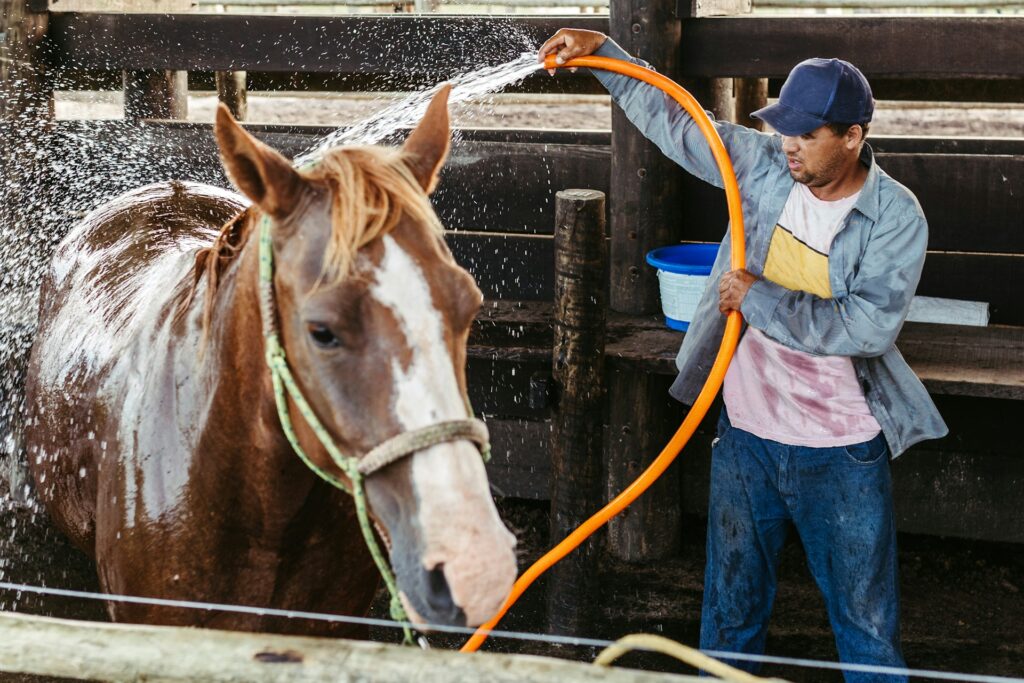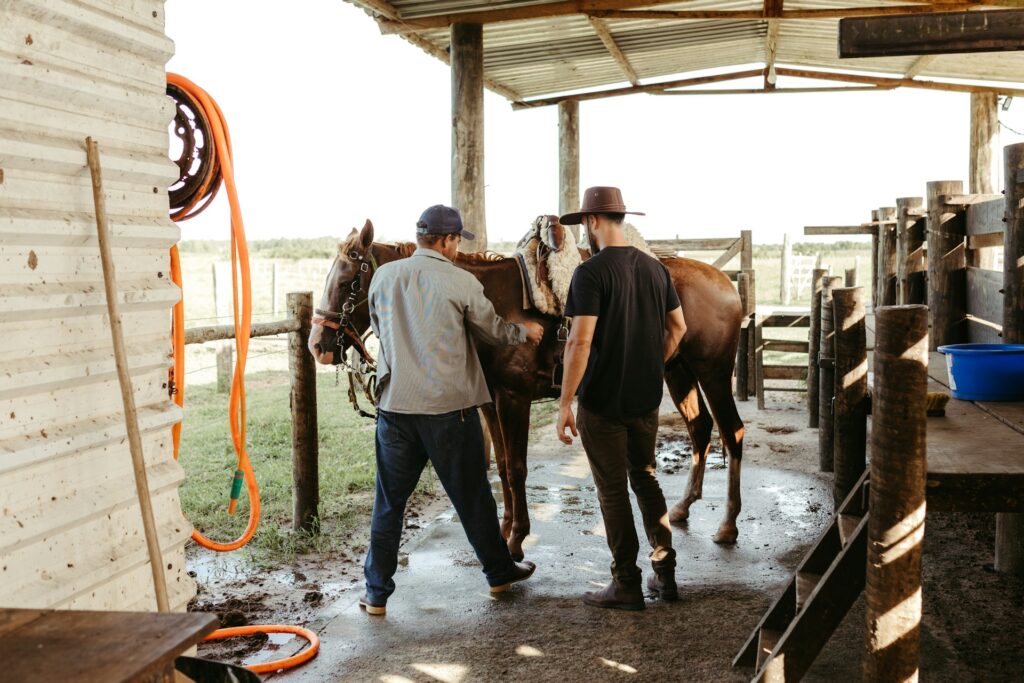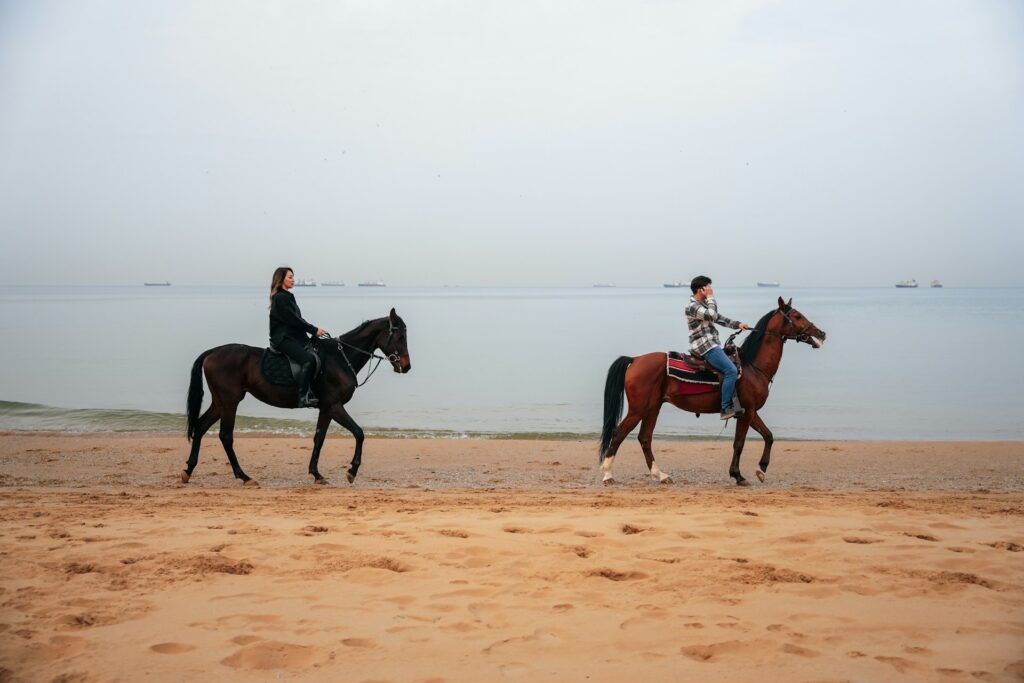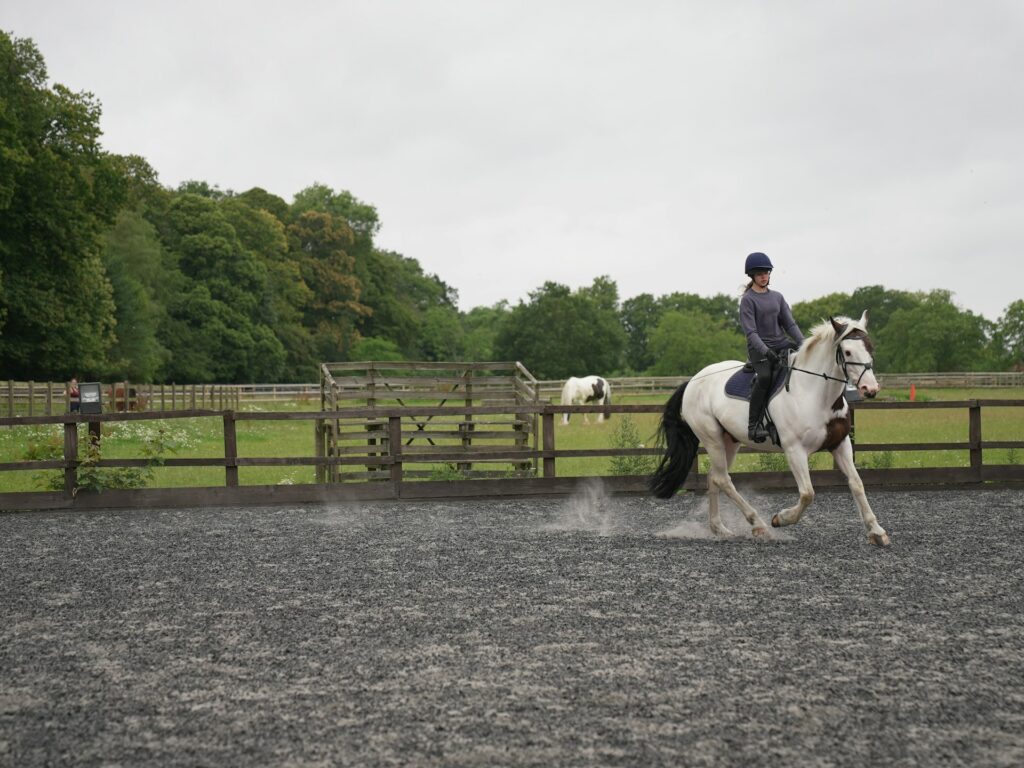Horse riding is a deeply rewarding pastime, fostering a unique bond between rider and steed. However, maintaining this bond requires dedication to your horse’s health and well-being. Here are some essential tips to ensure your horse remains happy and healthy.
Regular Grooming
Regular grooming is vital for your horse’s health. It not only enhances blood circulation to the skin but also helps prevent conditions like scratches and thrush. Here’s how to make the most of your grooming sessions:
- Daily Brushing: Use a curry comb to loosen dirt and stimulate the skin, followed by a stiff brush to remove the loosened dirt and a soft brush for finishing touches.
- Hoof Care: Clean your horse’s hooves daily to prevent thrush and other infections. Use a hoof pick to remove debris and check for any signs of injury or disease.
- Mane and Tail Maintenance: Regularly detangle and clean the mane and tail to prevent matting and promote healthy growth.
For more detailed grooming tips, consult experienced riders at your local stables or explore online resources and tutorials.

High-Quality Food
Nutrition is fundamental to your horse’s health. Here’s a breakdown of what your horse needs:
- Water: Always provide a clean, fresh supply of water. Horses typically drink 5-10 gallons per day.
- Balanced Diet: Ensure your horse’s diet includes the six essential nutrients: water, carbohydrates, fats, minerals, vitamins, and protein. High-quality hay and pasture should form the basis of their diet, supplemented with grains and concentrates as needed.
- Avoid Harmful Foods: Never feed your horse chocolate, avocado, persimmons, fruits with stones or pips, lawn clippings, dairy products, potatoes, or other nightshades.
Consult with your vet to tailor a diet plan specific to your horse’s needs and monitor their weight and condition regularly.
Appropriate Shelter
Providing appropriate shelter is crucial, even for horses that can live outside most of the year. Here’s what to consider:
- Sturdy Construction: Ensure the shelter is robust enough to withstand strong winds and harsh weather. Materials like treated wood or metal are ideal.
- Proper Ventilation: Good airflow is essential to prevent respiratory issues. Ensure the shelter has adequate ventilation without exposing your horse to drafts.
- Insect Control: Use fly screens or insect repellents to protect your horse from pests, which can cause irritation and transmit diseases.

Schedule Vet Visits
Routine veterinary care is essential for early detection and prevention of health issues. Here’s what to keep in mind:
- Regular Check-ups: Schedule bi-annual vet visits for comprehensive health assessments, vaccinations, and dental check-ups.
- Emergency Plan: Have a plan in place for emergencies, including contact information for your vet and a basic first aid kit.
- Monitor Health: Keep an eye on your horse’s behaviour and physical condition. If you notice any signs of illness or discomfort, consult your vet immediately.
Pay Attention To Their Hooves
Hoof care is critical for your horse’s overall health and mobility. Here’s how to maintain healthy hooves:
- Daily Cleaning: Pick out your horse’s hooves before and after riding to remove debris and check for injuries.
- Regular Trimming: Schedule regular visits from a farrier (every 6-8 weeks) to trim and balance the hooves.
- Moisture Management: Use hoof conditioners to maintain proper moisture levels and prevent cracking or drying out.

Exercise
Regular exercise is crucial for your horse’s physical and mental well-being. Here’s how to manage it effectively:
- Gradual Increase: Introduce new exercise routines gradually to avoid overexertion. Start with light activities and slowly increase intensity and duration.
- Variety: Incorporate different types of exercise, such as trail riding, lunging, and arena work, to keep your horse engaged and fit.
- Fitness Plan: Develop a fitness plan with specific goals and track your horse’s progress. This can help prevent obesity and improve overall health.
Invest in high-quality gear, including saddle pads, bridles, and hoof covers, to ensure your horse’s comfort and safety during exercise.

Appropriate Riding Equipment
Equipping both you and your horse with the right gear is essential for a safe and enjoyable riding experience. For the rider, a well-fitted, certified riding helmet is crucial for head protection, and sturdy riding boots with a heel prevent your foot from slipping through the stirrup. Men’s breeches provide comfort and flexibility for male riders, with reinforced knee patches or full-seat options for added grip and durability, whilst for female riders, tailored riding tights or breeches offer a flattering fit and similar functional benefits.
Riding gloves protect your hands from blisters and offer better grip on the reins, while a body protector can reduce the risk of injury during falls, especially for beginners or those engaging in jumping or cross-country riding.
For the horse, a well-fitted saddle is essential for both the rider’s comfort and the horse’s back health, so consulting with a professional saddle fitter is recommended. A comfortable bridle that fits your horse’s head well and allows for effective communication through the reins is important, as is ensuring the bit is the correct size and type. Saddle pads or numnahs provide cushioning and protect your horse’s back from the saddle, while also managing sweat and moisture.
A properly fitted girth keeps the saddle secure without causing discomfort, and hoof boots can protect your horse’s hooves during rides on rough terrain, especially for horses with sensitive feet or those transitioning from shoes to barefoot. Leg wraps or boots are essential for protecting your horse’s legs from injuries during exercise, particularly in activities like jumping or trail riding.
The Bottom Line
By following these tips, you can ensure your horse remains healthy, happy, and ready for many enjoyable rides together.
But where might those rides take place, we hear you ask? Well, we’ve heard Wales is just the place for it. There, or Kentucky, perhaps…





